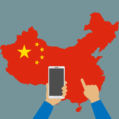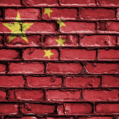Weekly Focus APAC: Singapore Wine Retailer Drinks Up Sales on Blockchain


In this edition of Weekly Focus APAC: Singapore Wine Retailer Drinks Up Sales on Blockchain; JD.com Turns On State Grid with IoT; and Alibaba Goes For HK IPO.
Singapore Wine Retailer Drinks Up Sales on Blockchain
Singapore-based Blockchain Wine has deployed blockchain for its TATTOO Wine marketplace, tapping the technology to trace and authenticate products sold on the platform.
Supported by EY OpsChain blockchain platform, the marketplace uses digital tokens that trace the origins, quality, and authenticity of both new and vintage wines, eliminating the need for intermediaries, said Ernst & Young Solutions (EY).
The marketplace currently offers products from wineries in France, Spain, Italy, Australia, New Zealand, and the Americas, and is looking to enable wineries of all sizes across the globe to sell to Asia-Pacific consumers.
Wines and shipments on the platform are tracked and managed on the public Ethereum Mainnet, or main network.
Blockchain Wine's founder and chairman Tim Tse said: "With the TATTOO Wine marketplace, every bottle is traceable from the point of origin all the way through to direct delivery, and on to the consumer. TATTOO helps reduce layers of distribution and helps address the issues of counterfeit wines, optimises supply chains, facilitates trade, and empowers both wineries and consumers.”
The marketplace platform lets wineries upload product catalogues and consumers can browse the various options.
EY Asia-Pacific's blockchain lead Jimmy Ong noted that consumers were increasingly concerned about the origins of their products and blockchain platforms could help ease such concerns and build consumer confidence.
JD.com Turns On State Grid with IoT
The e-commerce giant has inked an agreement to help China's national power company, State Grid, build its own smart platform to manage various devices including electricity meters, power distributors, humidity sensors, and temperature sensors.
Tapping JD.com's Internet of Things (IoT) solution, State Grid would be able to remove data silos as well as collect and analyse data on energy usage across the different devices. This would enable the power company to optimise its operations, tweaking its systems down on a granular level, said JD.com.
For instance, State Grid would be able to optimise the use of public electric car charging stations and balance demand and supply. The power company aimed to build 120,000 such stations by next year, said JD.com, which added that there currently were more than 460,000 public charging points across China.
It said its IoT application also would enable State Grid to analyse energy consumption and better address energy needs in the country.
"Without seamless, smart integration of temperature sensors, energy meters, and other systems, most residents likely do not know that turning their airconditioner down just one degree cooler actually puts a lot of strain on an already strained energy system," JD.com said.
It added that its IoT solution also would enable the implementation of dynamic pricing, so consumers would had data of their energy usage and be incentivise to make adjustments to utilise energy more efficiently.
JD.com's IoT president John Zhou said: "Most people, from corporations to individuals, are conscious of the urgent need to better manage and reduce energy consumption, but without reliable data and analysis capabilities, it is hard to know how to do so.
"Our IoT platform solution for the energy industry breaks down barriers between devices, companies, and even individuals, allowing for a complete picture of energy usage. With this information, we can work with companies like State Grid to take steps in the right direction to increase efficiency, reduce costs, and bring more benefit to society."
Alibaba Goes For HK IPO
Alibaba Group has launched its Hong Kong public offering, with plans to issue 500 million new ordinary shares and an additional 75 million that underwriting banks have the option to sell.
Priced at no more than HK$188 (£18.69) per share, the move could raise up to US$13.8bn (£10.74bn) for the Chinese e-commerce giant.
Slated to begin trading on November 26, this would be Alibaba's second listing after its New York IPO in 2014, when it had opted for the US city over Hong Kong because the latter did not permit dual class stock. It since changed its rules to allow such share structures.
In his letter to investors, Alibaba's chairman and CEO Daniel Zhang said: "When Alibaba Group went public in 2014, we missed out on Hong Kong with regret. Hong Kong is one of the world's most important financial centres.
"Over the last few years, there have been many encouraging reforms in Hong Kong's capital market. During this time of ongoing change, we continue to believe that the future of Hong Kong remains bright," he said.
Zhang added that Alibaba, over the last two decades, had transformed from an e-commerce company to become "the basic infrastructure" for the digital economy, providing an ecosystem that encompassed digital commerce, financial technology, logistics, cloud computing, and big data.
It now was aiming to serve more than 1 billion Chinese consumers by 2024 and facilitate ¥10tn (£1.11tn) of transactions on its platforms. By 2036, it was targeting to serve 2 billion customers globally, generate 100 million jobs, and support 10 million small businesses on its platforms.
Zhang said: "To realise these goals, we must continue to pursue three strategic pillars: globalisation, domestic consumption, and big data powered by cloud computing."







Follow Fast Growth Brands